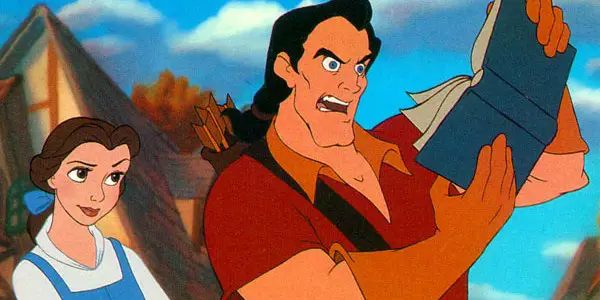I’ll be the first to admit that I am not a fan of remakes. So when I heard that Beauty and the Beast was getting a reboot, I was less than thrilled. Disney films were a large part of my childhood and Belle happened to be a character that, strangely, I identified with. Why? Because Belle was clearly a feminist – and casting Emma Watson in the remake solidified that sentiment.
Nonconventional Disney
Most young girls grow up with the notion that the prince will swoop in and save them from distress. Look at Snow White and the Seven Dwarfs and Sleeping Beauty; it’s a common theme for the damsel to await a heroic gesture from her male counterpart. Yet, Belle was different – she didn’t need a man. Gaston, the nauseously macho man from town, makes multiple, intrusive advances and Belle squashes them all. Belle’s father suggests that she marry so that she’s not alone, but it’s just not a part of her agenda. Books are what she loves.

In the classic “Little Town” scene, after visiting the bookshop, she walks through the rest of town with her head stuck in a book. The townspeople remark how she is peculiar, odd and different because she is reading and not paying attention to the ogling from Gaston. Reading, the mere act of a woman opening a book and enjoying a story, is enough to have the townspeople deem Belle an outsider. It’s not like she’s leading an uprising of the resistance, the girl just likes to read! Sure, not needing a prince to complete you or having a penchant for reading are feminist leaning, but it is Belle’s decisions after she enters the castle are when the real story begins.
From Girl To Woman
Belle goes looking for her father after he doesn’t come home. She traces him back to the castle where she will discover the Beast and his musical house staff. First, can we take a second to acknowledge that it’s a pretty big deal for her to go wandering off in the woods on her own? And when she finds her father, and subsequently the Beast, she doesn’t run off crying or scared. Here’s where the feminism kicks in – she chooses to take the place of her father at the castle. Her father begs her not to, but she insists.
Now, I hope anyone reading this would know that feminism is about men and women having equal rights and one of those rights is for women to make their own choices. That is exactly what Belle did – and she makes even more choices throughout the film, like when she chooses to escape the castle. Yet, the escape goes awry and Belle is almost attacked by wolves until the Beast steps in and saves her. Yes, that part is typical Disney.
After Belle sees the Beast injured, she once again makes a choice and decides to go back to the castle to take care of him. All of these choices set Belle apart from the rest of the women in Disney films, or fairy tales in general. By taking action and creating her own destiny, Belle forges out to create a life of her own, not one that was made for her.
Perfect Casting
The first piece of casting that I heard was Dan Stevens as the Beast (on a side note – if you haven’t seen The Guest starring Dan Stevens, you must certainly get on that), with the announcement of Emma Watson following shortly after. In retrospect, the casting of Emma Watson seems like a no brainer.
Watson became known to the world as Hermione Granger in the Harry Potter series, so she is well-accustomed to a large scale production. The character of Hermione became an idol for young girls around the world and now a new generation will be seeing Watson as the character of Belle for the first time. In my opinion, it is what Watson does for women’s rights in her down time is what makes her casting as Belle even more important.
Watson is an outspoken feminist who works with the United Nations for women’s rights initiatives. She has spoken up on numerous occasions about the pay gap in Hollywood and sexism in the casting process. Her personal life mirrors that of her character Belle in that she won’t allow society to dictate how her life should be lived. To me, that is a positive role model for young boys and girls to look up to.
Conclusion
As I get older, I realize how important certain films from my childhood were in helping me develop into an adult. I see how some films, or stories, instilled fear in me, while others instilled hope. The character of Belle in Beauty and the Beast made me feel proud of being a little different. I wasn’t the girl who was riding bikes and playing volleyball, I was reading and watching movies. Now, a new generation of girls will have a character to look up to with Emma Watson at the helm.
How is the portrayal of a character targeted for children important to you? Were there any that left a lasting impression on you, like Belle left on me? Tell us in the comments below!
Does content like this matter to you?
Become a Member and support film journalism. Unlock access to all of Film Inquiry`s great articles. Join a community of like-minded readers who are passionate about cinema - get access to our private members Network, give back to independent filmmakers, and more.